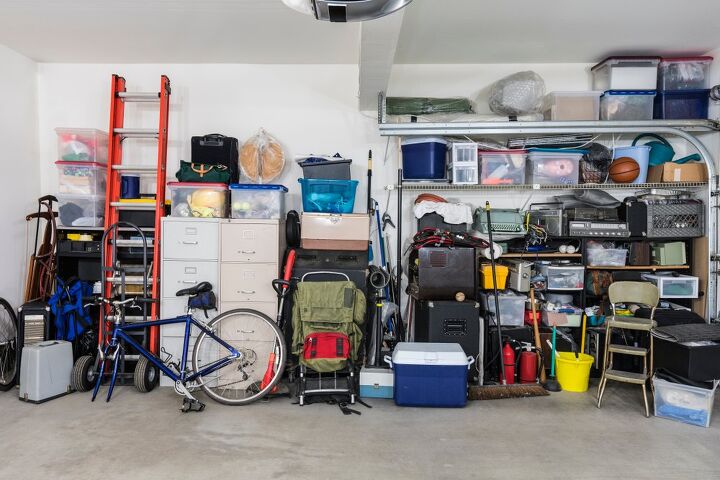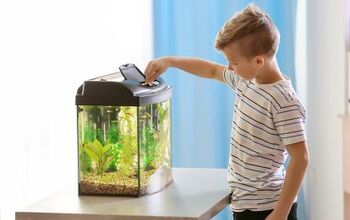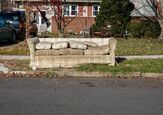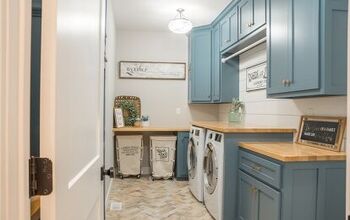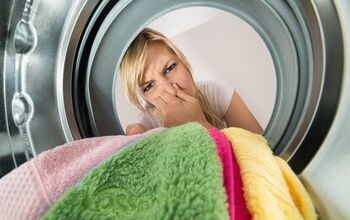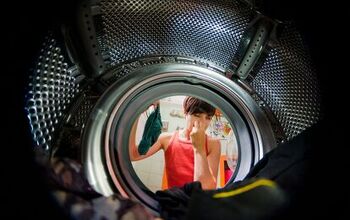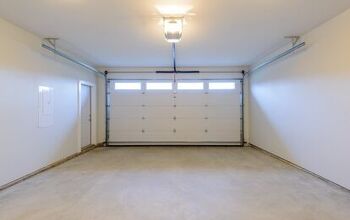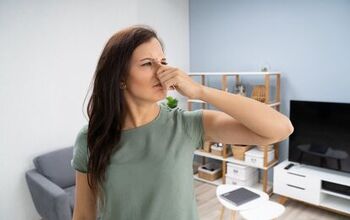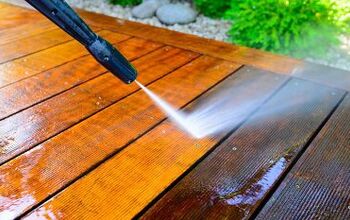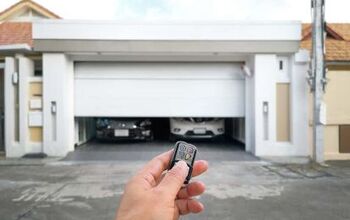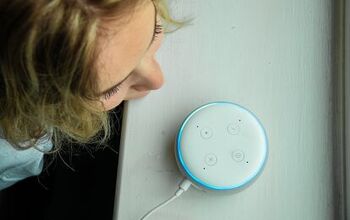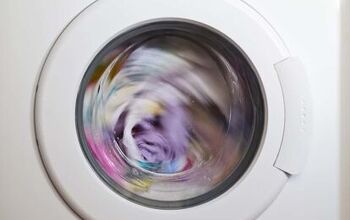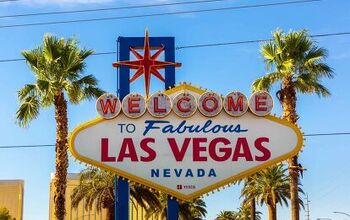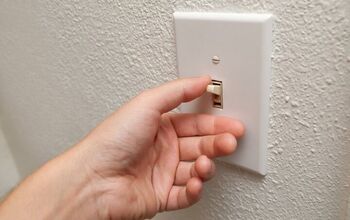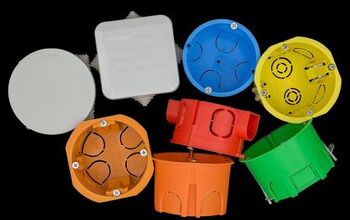Musty Smell In The Garage? (Possible Causes & Fixes)
Most of us have experienced this situation: we enter our garage (or someone else’s) and are met with a dank, musty smell. While not the most offensive odor, musty garage smells are unpleasant and maybe a little embarrassing. They leave us not wanting to linger too long after parking our car. Why do so many of our garages smell musty?
A musty smell in the garage is usually caused by the presence of mold and mildew. A poorly ventilated dark, damp garage is a breeding ground for mold growth. A space overpacked with boxes, fabrics, and clothing contribute to the smell. Remove the musty smell by clearing out moldy boxes and fabrics, cleaning the floors, and deodorizing the air.
Have you noticed the musty smell in your garage is worse after rainfall? Rain dampens the outer garage walls, and fosters a damp environment. Water may even seep in under the garage doors. This moisture can cause the growth of mildew in as little as 24-48 hours.
Do You Need Mold Inspectors and Testing Services?
Get free, zero-commitment quotes from pro contractors near you.

What is Musty Odor?
A musty odor is usually attributed to the presence of mold and mildew. Mildew and mold grow when damp environments attract mold spores. These spores collect and emit a sour-smelling gas. This musty scent is earthy, and similar to a wet dog, rotting wood, or dirty socks.
It can be likened to the smell of a forest after a rainstorm or during autumn season. Musty odors are most commonly detected in moist environments, such as attics, garages, washing machines, and wet clothes.
What Causes Musty Smell in Garage?
Before you can eliminate the musty odor from your garage, you’ll need to know what causes it. A musty smell is almost always due to mold or mildew growing somewhere in the garage. But what circumstances are causing the mold and mildew growth? And are there other potential sources of the odor? Here are the most common causes of a musty smell in the garage.
Damp, Poorly Ventilated Garage
Garages are highly susceptible to mold and mildew growth. This is because unlike other rooms in your home, garages are fully open to the outside elements. Every time you open and close them, humidity, snow, and rain can enter the space. Snow and rain boots, bicycles, and car tires can also track in water. Even when the garage doors are closed, heavy rain or melting snow can leak through the loose seal.
When a space like a garage is dark, damp, and infrequently ventilated, it attracts mold fast. Within 24 hours, mildew will start growing on damp spots, especially on fabrics, woods, and cardboard. A good way to prevent this bacteria growth is to absorb any large puddles of water you see.
Leave the garage doors open for an hour once a month to allow ventilation. This is especially useful after heavy rainfall or snow melt. You may also want to lean items out of your garage. An overpacked space can contribute to poor ventilation.
Moldy Storage Items and Fabrics
It’s no surprise that many people utilize their garage space for storage. But one large survey of U.S. homeowners found that 1 in 4 people say their garage is too cluttered to fit a single car! This cramped space might be to blame for much of the musty smell.
When a room is packed to the brim with papers, fabrics, and firewood, it is at greater risk for growing mold. This is for two reasons: the room cannot air out properly, and the tightly packed materials hold moisture and attract mold spores.
If your garage smells musty, you should check these items for possible mold:
- Cardboard storage boxes.
- Stored clothing, such as wool sweaters, hats, jackets, and boots.
- Piles of firewood.
- Boxes of paper files.
- Stored furniture.
If your garage is packed to the brim, focus on clearing the clutter. See if you can donate anything or hold a garage sale to get rid of items you no longer need. Dispose of old boxes, clothes, papers, or furniture growing mold.
Dirty Garbage and Recycling Bins
Do you store your bins in the garage? Garbage and recycling bins may be the culprits behind the musty smell. When items, especially food, spill out of their bag, they can grow mold. Cardboard and paper products that sit in a damp recycling bin for too long can get mildewy.
Make sure you clean out any spills as soon as possible to prevent bacteria. Cleaning out your bins a few times a year is also an effective preventative measure. You can partially fill the bucket with warm water mixed with dish soap or distilled vinegar. Then scrub the inside with a long-handled brush.
Smelly Floor Drains or Sinks
This is a frequently overlooked cause of a musty smelling garage. If you have a floor drain or sink in your garage, there may be a sewage backup or decaying matter inside. This odor can smell like a combination of rotten eggs, wet laundry, and sewage.
Old water and other debris sitting in the trap inside your drain can grow bacteria. These bacteria emit a hydrogen sulfide gas that is quite stinky. If your sink or drain is giving off the stinky smell, you’ll want to kill the bacteria.
How do you get rid of the stink coming from your drain pipe? Follow these useful tips.
- Pour a pot of hot or boiling water down the drain. This dislodges trapped debris and kills bacteria.
- Sprinkle baking soda into the drain. This absorbs the smell.
- Pour a tablespoon of mineral oil down the drain. This evaporates slower than water and prevents smells in the trap.
How to Remove Musty Smell from Garage
There are multiple steps you can take to remove the musty smell from your garage. Your course of action will depend on what is causing the smell. You may need to take a multi-step approach to get rid of it. Here are some steps you can take to get your garage smelling fresh and mold-free.
Step One: Ventilate and Deodorize Garage
A major contributor of mildew and mold growth is a humid, unventilated space. The darker, warmer, and more stagnant the air, the more mold spores are attracted. Whenever possible, keep the garage doors open to air out the room. If you live in a humid climate, pay special attention to ventilating the garage after heavy rainfall.
Consider placing an air purifier, dehumidifier or an ionizer in your garage. These machines disinfect the air, deodorize it, and prevent humidity. This can help slow down or stop mold growth, and destroy any harmful bacteria in the air.
If you don’t want to shell out the money for a dehumidifier machine, make one yourself. In a spray bottle, mix up one-part water, one-part distilled white vinegar. Then spray the mixture throughout the garage to deodorize the air.
Finally, check for any water that’s leaking into your garage. Avoid letting any built-up moisture or puddles sit for too long. These contribute to the room’s humidity and can get absorbed by nearby materials. Wet boxes, wood, and fabrics will grow mildew within 24-48 hours.
Step Two: Wash the Floors to Kill Off Bacteria
It’s a good idea to wash your concrete floors to kill off any mold or mildew. First, you’ll need a bucket of water mixed with 1 cup of chlorine bleach. Take a mop and spread the solution around, covering the entire floor surface. Soak up any excess solution with the mop. Then let the floor dry. Mopping the floors with bleach kills off any bacteria thriving in the concrete. It will also help deodorize the air.
Note: when working with bleach products, make sure you leave the room open to the outdoors. The fumes can be powerful.
Step Three: Clean Clutter, Moldy Items, and Bins
If your garage is packed to the brim with boxes and other stored items, it may be time to declutter. An overpacked garage prevents proper ventilation. Materials like cardboard boxes and clothing absorb moisture, and grow mold easily.
Check the bottoms of your cardboard boxes, furniture, and clothing for mold. Toss anything that is contaminated with mold or mildew growth. Have a garage sale or donate items to reduce the clutter. Watch as the more you remove from your garage, the cleaner the air smells!
Make sure there are no food spills in your garbage bin. Food and organic materials grow mold fast. Do a deep-clean of your bins by filling them up a quarter with water mixed with dish soap or distilled vinegar. Then using a long brush, scrub the interior.
Do You Need Mold Inspectors and Testing Services?
Get free, zero-commitment quotes from pro contractors near you.

Related Questions
Where does garage floor drain go?
A garage floor drain can be installed to lead almost anywhere. The drain can flow to a runoff outside, tied into your septic system, or go to a separate drywell. You can install a floor drain in almost any type of garage, even with a concrete slab foundation.
Why does garage floor sweat?
Garage doors “sweat” when the humidity is too high in your garage. Condensation collects when humid air comes into contact with the cool concrete floor. These water droplets can make the floor slippery, and contribute to mold growth. This floor sweat may also be the result of water rising from beneath the concrete slab of your garage.
Which garage dehumidifier is best?
Dehumidifiers are the most effective way to prevent a humid, moldy garage space. Some of the best dehumidifiers on the market are the Frigidaire High Efficiency 70 Pint Dehumidifier, the BluDri 150 Pint Dehumidifier, and the GE ADEL35LZ-GE.
More by Jessica Vaillancourt



